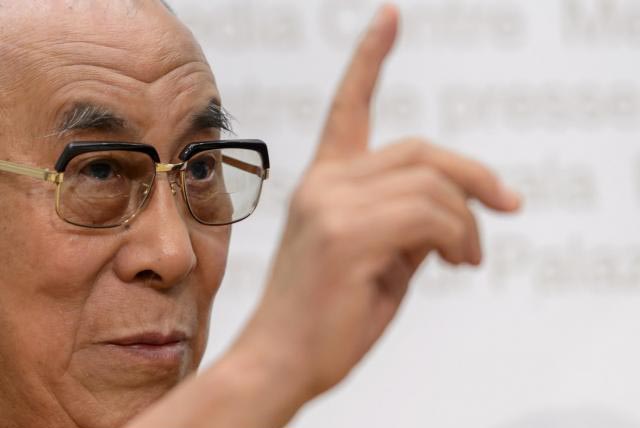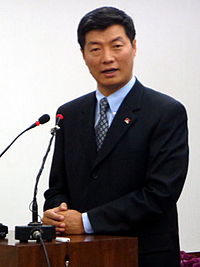 AFP
AFP
CHICAGO, US, 15 May 2013
The Dalai Lama warned Tuesday against the accumulation of power in the hands of the few, and told US politicians that maternal love at an early age was vital for policy-making.
Addressing lawmakers at the state Assembly in Wisconsin, Tibet’s exiled spiritual leader said that he occasionally felt bullied as a child from the few officials who held power to guide him as a young monk.
“So, since early age, [I thought that] power in few people’s hands is always dangerous,” said the Dalai Lama, who was paying his ninth visit to the state capital Madison where he has often met academics and monks.
Lawmakers’ welcome of the the Dalai Lama offered a rare bipartisan moment for one of the most polarised US legislatures. In 2011, lawmakers fled the state to try to stop anti-union measures by Republican Governor Scott Walker.
The Dalai Lama, who was scheduled to meet Walker, made no reference to Wisconsin’s politics and instead was referring to his own decision to hand over temporal power to a leader elected among Tibetan exiles.
The Dalai Lama renewed his call for children to have a secular education in what he called universal values, such as compassion, regardless of their religious background.
“Even among politicians here, those individuals who received maximum affection when you were very young – mainly from our mother – then such people, deep inside, I think more peace, more inner strength,” he said.
But he said that politicians and businesspeople who “lack affection, from our mother, or sometimes even (suffer) abuse, then such successful people deep inside (have) some kind of sense of insecurity, fear (and) automatically distrust” others.
The Dalai Lama, 77, a winner of the Nobel Peace Prize, fled the Chinese rule of Tibet in 1959 for the safety of India. China regularly condemns foreign leaders for meeting him.
Copyright © 2013 Agence France-PressePublished in Asia One











.jpg)

